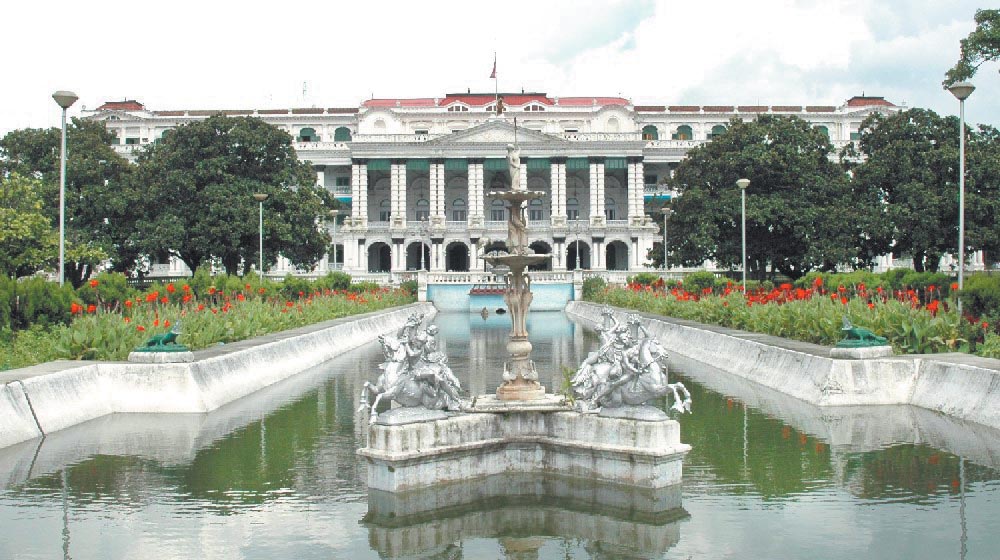Govt indifferent to inmates’ plight
Kathmandu, March 25
Inmates in Nepal do not just live in overcrowded prisons that utterly lack basic facilities but also have been making do with a pittance a daily allowance of Rs 45 and 700 grams of rice year after year.
Although it was increased from Rs 30 a day in 2006, Nepali prisons have been guided by Prison Act drafted in 1963.
In 2005, based on its study reports, National Human Rights Commission had recommended the government to upgrade existing amenities of the prisons and guarantee basic human rights, including sanitation, room space, quality food and regular health check-ups.
But the government has not heeded to the pressure from rights groups, besides NHRC and the Supreme Court.
NHRC member Prakash Osti said the commission had recommended the government to hike the existing Rs 45 daily allowance to Rs 145, considering the inflation over the years. He said the NHRC would again raise the issue to ensure the human rights of the inmates.
Rights activist Mandira Sharma said there had been several studies to ensure the rights of prisoners since 2003 but the government has remained indifferent to the recommendations.
Bed Prasad Kharel, acting director general of Department of Prison Management, said 13 inmates of the Central Jail in Kathmandu lost their lives during April 25 earthquake due to unsafe structure of prison, thanks to poor management and lack of political will.
Only 93 inmates of Sindhupalchowk district jail out of 216 who had fled for their lives after the prison wall collapsed during the earthquake, have returned and have been sent to jails across the country.
“How can the facilities for inmates devised for the socio-economic status 50 years ago be justified today?” wondered Kharel.
He said despite dilapidated infrastructure the prisons had been accommodating five times more inmates than their actual capacity.
Kharel pointed out three major problems ailing Nepali prisons. The physical infrastructure in all 74 prisons of Nepal is in a shambles and even a small jolt of fresh earthquake could kill many inmates.
He said government did not even bother to compensate those inmates killed while inside the prison.
Secondly Nepali prisons have been guided by the laws made 52 years ago Prison Act 1963.
Thirdly, since the pays and perks for the officers deputed at prisons are unattractive nobody wishes to be transferred to prisons where they have to work during odd hours. “Almost all the positions of the prison management have been held by junior officers,” he claimed.
Some 18,000 people are living in 74 prisons of which some 11,000 are inmates while the rest are detainees. Even the implementation of the government’s plan to develop open prison has not gained momentum.
“The construction work of open prison in 550 ropani land of Naubasta in Banke district has been halted due to problems in contract for the construction work.”
Kharel said fencing of the area has started from Trishuli of Nuwakot district where the government is planning to shift the Central Jail with a capacity of 7,000 inmates.
Central jail would only accommodate detainees after the construction of the facilities in Trishuli.






